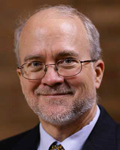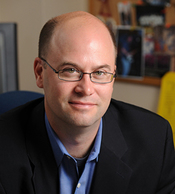NDLS faculty experts comment on Pope's visit to the United States
A collection of NDLS faculty experts comments on the Pope’s visit to the United States.

The marathon session wrapped up at 5:30 a.m. just three hours before the FARC’s advisers were on a commercial flight to Havana to get the commanders’ blessing, according to Douglass Cassel, a University of Notre Dame law professor who was one of the government’s three representatives at the talks.
Cassel said the FARC worked overtime in the hopes of securing the deal ahead of Pope Francis’ arrival Saturday to Cuba but in the end fell short of the goal. The sticking point he said was what would happen if the FARC lied to special tribunals and guarantees that the rebels wouldn’t be extradited to the U.S., where they face charges for cocaine trafficking, if they honored their commitments.
“Without even being present physically in the room he was a very important presence,” said Cassel of the pope.
Colombia’s President, Rebels Announce Breakthrough in Talks Associated Press (Quotes: Doug Cassel) – Sept. 23, 2015

“The news is consistent with what the pope said, consistently, in his various addresses and appearances,” said Richard W. Garnett, an associate dean and a professor at Notre Dame Law School. – Pope Francis, the Kentucky Clerk and Culture Wars Revisited – New York Times (Sept. 30, 2015).
“That’s exactly what the bishops have been saying: let our ministries do their good work for social welfare in a way that is true to our Catholic character,” said Rick Garnett, a University of Notre Dame law professor who specializes in religious freedom. “Our institutions are here to serve, but it is unjust and unnecessary to demand that they secularize as a condition.” – Pope Religious Liberty Talk Falls Short, Amid List of Issues – Associated Press (Sept. 26, 2015).
“He seems to be using his visit as an opportunity to remind Americans that religious freedom is not supposed to be a ‘conservative’ issue, but rather a fundamental human-rights issue,” said Richard Garnett, an expert on religious liberty at the University of Notre Dame. – In Philadelphia, Pope Francis put himself into America’s hot-button religious freedom debates – The Washington Post (Sept. 26, 2015).
“What a great address – building around those four figures. Never a hint of lecture or scolding,” writes Richard Garnett in an e-mail. – Pope Francis’ speech to Congress: both moral and political – Christian Science Monitor (Sept. 24, 2015).
Pope Francis delivers prophetic, pastoral message to Congress – FoxNews Opinion (Op-ed by: Rick Garnett) Sept. 24, 2015.
Richard Garnett, a professor who specializes in religion at the University of Notre Dame law school, said it’s not uncommon for popes to weigh in on public policy. Pope John Paul II mediated a border dispute between Chile and Argentina in the 1970s, he said, and the Vatican endorsed Obama’s effort to ban assault weapons in 2013.
“For him, these are not inconsistent or even separate matters; for him, the views that Democrats will applaud and the positions that Republicans will cheer are coming from the same place,” Garnett said in an email. “That is why his message is so challenging. He’s not looking to affirm politicians or make them feel comfortable.” – Environment & Energy Publishing article Pope Francis underscores President Obama’s message on climate change (Sept. 24, 2015).
“His visit and message are both prophetic and pastoral,” said Richard Garnett, a University of Notre Dame law professor. “His challenge, to all of us, is to allow ourselves to be challenged by Christianity.” in Los Angeles Times article Pope Francis opens visit with message for both sides of U.S. political divide: Save our planet (Sept. 24, 2015).
Following Francis’ talk at the White House and as he prepares to address Congress Thursday (Sept. 24), it is not surprising, though it is disappointing, that many journalists and politicians are viewing Pope Francis’ visit to the United States entirely through the lens of American partisan politics, according to politics and religion expert Richard W. Garnett, law professor.
Garnett says, “Many appear to be more interested in predicting which political ‘side’ will gain an advantage from the visit than in hearing what the pope has to say. Any American politician, of either party — any American, for that matter — who feels completely affirmed and vindicated by Pope Francis and his presentation of the Gospel is not paying attention. Pope Francis is not interested in providing candidates and officials with a scorecard or a checklist that they can use to compete with each other or to spin their own records as ‘Francis-approved.’ A politician, of either party, who sees Pope Francis’ visit as a photo op to exploit at election time, or who expects a pat on the back for his policy views, is doing it wrong. His visit and message are both prophetic and pastoral. His challenge, to all of us, is to allow ourselves to be challenged by Christianity to discomfort, and to conversion. Many Republicans are uncomfortable in advance — as they should be — by the likelihood that the pope will challenge the world’s richest nation to put aside anti-immigrant rhetoric and to embrace those victimized by violence, oppression and poverty abroad. Many Democrats, on the other hand, appear to be looking forward to something like a papal pat on the back, but they will almost certainly be disappointed. The point is not simply that the pope will almost certainly criticize their embrace of abortion rights and urge greater protections for religious freedom. It is, instead, that the pope will be reminding everyone, regardless of party, that we all too often fail to attend, with mercy, to those ‘on the margins,’ which is where he is urging everyone to go.” (Sept. 23, 2015)
Top of the class
By MARGARET F. BRINIG and NICOLE STELLE GARNETT
Many urban Catholic schools in America have closed in the last 20 years but there are now signs of a revival, a trend the Pope will encourage with his visit to Our Lady Queen of Angels in East Harlem
The Tablet (Sept. 19, 2015)
Fr. Bill Dailey, C.S.C. of the University of Notre Dame joins WGN-TV to discuss his thoughts on the pope’s speech and why he thinks Pope Francis is different from his predecessors. (Sept. 23, 2015)